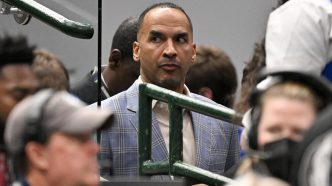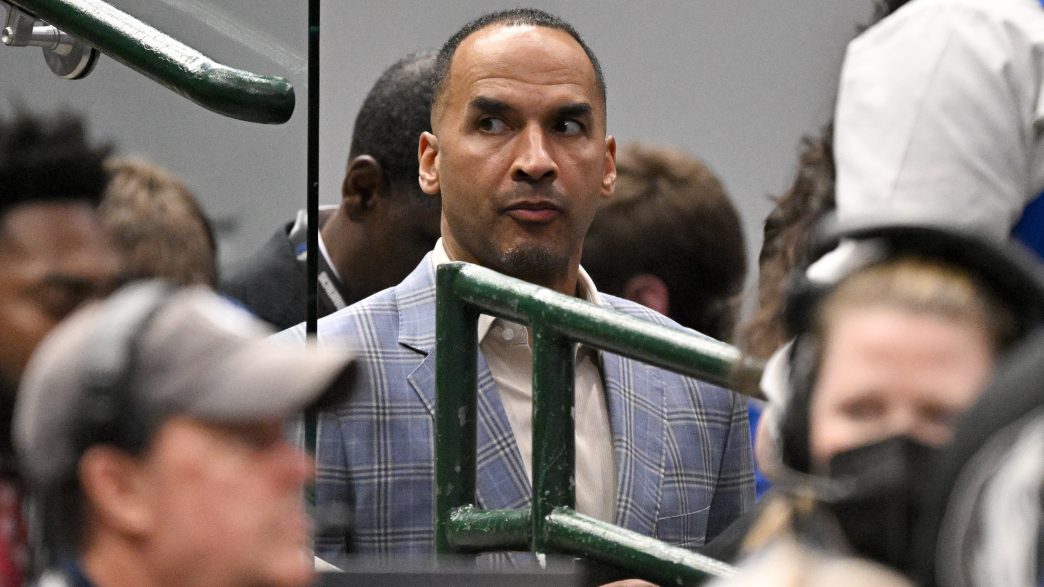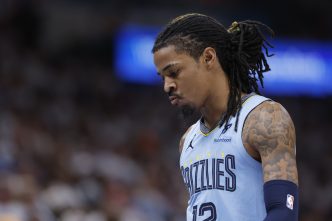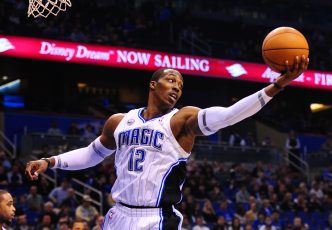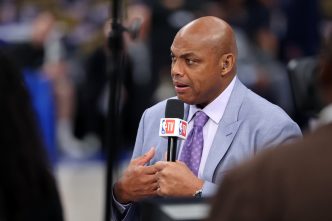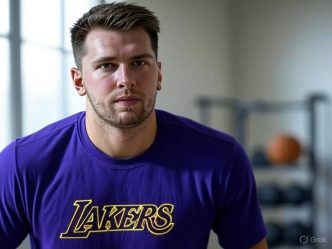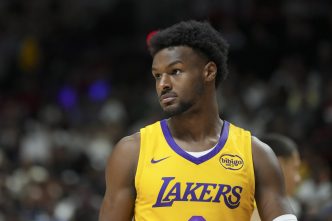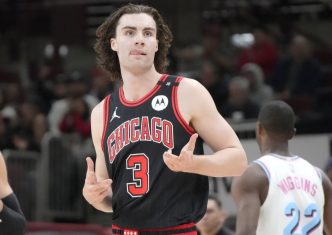Few decisions carry the weight of trading a generational superstar. For Dallas Mavericks general manager Nico Harrison, the hypothetical scenario of trading Luka Doncic—a five-time All-NBA First Team phenom and perennial MVP candidate—would not only jeopardize his job but also cement his tenure as one of the most catastrophic in franchise history. While this remains a speculative exercise, the ramifications of such a move underscore the delicate balance of trust, vision, and results that define an executive’s career. Here’s why trading Doncic could be Harrison’s undoing and the biggest mistake he’d ever make.
The Luka Doncic Phenomenon
At just 26 years old, Luka Doncic is the cornerstone of the Mavericks’ present and future. Since being drafted third overall in 2018, Doncic has redefined what it means to be a franchise player. His stat lines—averaging 33.9 points, 8.6 rebounds, and 9.2 assists in the 2023-24 season—are gaudy, but his impact transcends numbers. Doncic’s ability to bend defenses, orchestrate an offense, and deliver in clutch moments has made Dallas a consistent playoff contender, culminating in a 2024 NBA Finals appearance. He’s not just a star; he’s a global brand, a fan magnet, and the kind of player who can single-handedly elevate a franchise to championship contention.
Trading a player of Doncic’s caliber is rare in NBA history. The closest parallels—like the Oklahoma City Thunder trading Kevin Durant in 2016 or the Cleveland Cavaliers losing LeBron James in 2010—show that such moves often lead to years of mediocrity, fan backlash, and organizational upheaval. For Harrison, who took over as GM in 2021, moving Doncic would be a gamble with stakes so high that failure would be unforgivable.
Why Harrison Might Consider It (And Why It’s a Trap)
To entertain this hypothetical, let’s assume Harrison trades Doncic for a package of young players, draft picks, and cap flexibility. The rationale might stem from concerns about Doncic’s supporting cast, the team’s inability to consistently compete with elite Western Conference foes, or even whispers of Doncic’s frustration with the franchise’s direction. Perhaps Harrison believes a rebuild around multiple assets could create a more balanced roster, avoiding the pitfalls of a heliocentric offense reliant on one superstar.
But this logic crumbles under scrutiny. Doncic is under contract through 2027, with a player option for 2028, giving Dallas a long runway to build around him. Trading him prematurely assumes the Mavericks can’t address roster flaws through free agency, smaller trades, or coaching adjustments—moves Harrison has already shown aptitude for, like acquiring Kyrie Irving in 2023 or bolstering the frontcourt with Daniel Gafford and P.J. Washington. Moreover, the NBA’s history of superstar trades shows that the team losing the better player almost always regrets it. The Brooklyn Nets’ haul for Kevin Durant in 2023 included promising pieces, but they’ve yet to sniff the success they had with KD. The Mavericks, in a smaller market with less free-agent allure, would face an even steeper climb to recover.
The Fallout: Why Harrison’s Job Would Be on the Line
If Harrison traded Doncic, the consequences would be swift and brutal. First, the fanbase would revolt. Doncic is a cultural icon in Dallas, beloved for his flair and loyalty to the city. Trading him would alienate a fanbase still scarred by the post-Dirk Nowitzki doldrums. Attendance at American Airlines Center would plummet, and the Mavericks’ brand, heavily tied to Doncic’s global appeal, would take a massive hit.
Second, the team’s performance would likely tank. Even a haul of picks and prospects—say, a package resembling the Nets’ return for Durant (Mikal Bridges, Cam Johnson, and four first-round picks)—wouldn’t replicate Doncic’s immediate impact. Young players take years to develop, and draft picks are a crapshoot. The Mavericks could easily slide into lottery territory, a death knell for a franchise that’s built its identity on playoff contention. Owner Mark Cuban, known for his impatience with mediocrity, would not tolerate a prolonged rebuild, especially one triggered by a self-inflicted wound.
Third, Harrison’s credibility would be shot. The NBA executive world is a small circle, and reputation matters. Trading a top-five player in his prime would brand Harrison as reckless, especially if the return underperforms. His previous successes—signing Irving to a team-friendly deal or navigating the 2024 Finals run—would be overshadowed by this singular, franchise-altering blunder. Cuban, who has a history of bold but calculated moves, would likely see Harrison’s decision as a betrayal of the team’s championship aspirations, putting his job in immediate jeopardy.
The Biggest Mistake of Harrison’s Career
Why would this be Harrison’s defining mistake? Because it’s a choice that ignores the scarcity of players like Doncic. The NBA is a star-driven league, and superstars of Doncic’s caliber—capable of carrying a team to the Finals with the right support—are rarer than unicorn sightings. Harrison’s tenure has been about maximizing Doncic’s prime, not dismantling it. Trading him would signal a lack of faith in his own ability to build a winner, a fatal admission for any GM.
Moreover, the timing couldn’t be worse. The Mavericks are fresh off a Finals appearance, proving they’re close to a title. Harrison’s moves to surround Doncic with shooters, defenders, and a co-star like Irving show a clear vision. Abandoning that vision for a speculative rebuild would be akin to folding a winning hand in poker. Even if the trade yielded assets, the odds of those assets becoming a player as good as Doncic are microscopically slim. The Mavericks could spend a decade searching for their next franchise cornerstone, all while Harrison’s legacy is reduced to the guy who let Luka go.
The Path Forward: Avoiding the Nightmare
Fortunately, this scenario remains hypothetical. Harrison has shown no inclination to trade Doncic, and recent reports suggest Doncic is committed to Dallas, especially after the team’s 2024 success. Harrison’s focus should remain on fine-tuning the roster—perhaps adding a third scoring option or upgrading the bench—while leaning on coach Jason Kidd to maximize the current core. The Western Conference is brutal, but Doncic’s brilliance gives Dallas a puncher’s chance against anyone.
In the end, Nico Harrison’s legacy will hinge on how he stewards Luka Doncic’s prime. Trading him would be a self-inflicted disaster, a decision that would cost Harrison his job and haunt his career forever. The lesson is clear: when you have a generational talent, you build around them, not bet against them. For Harrison and the Mavericks, the path to glory runs through Luka—nowhere else.

